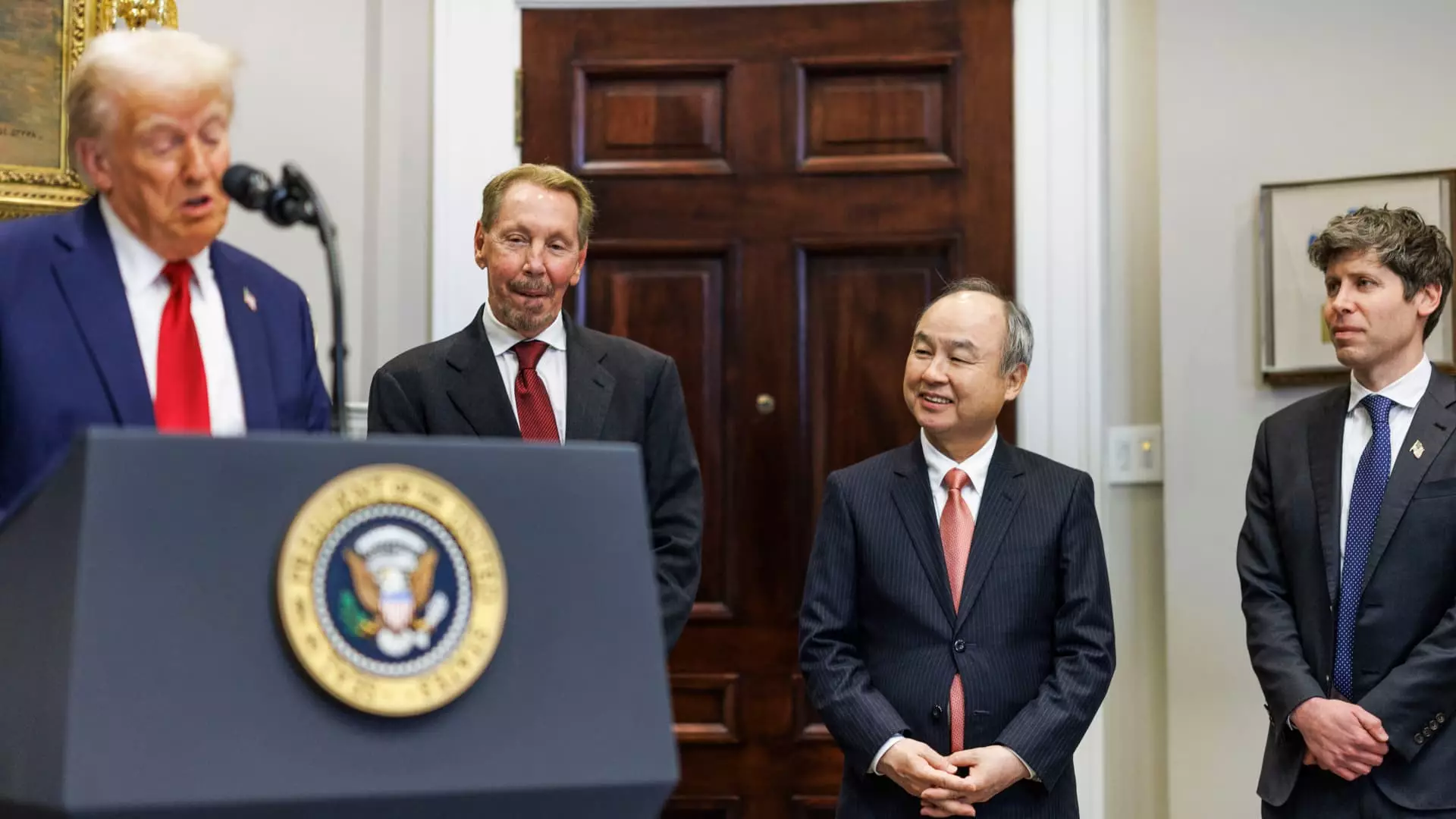In recent developments, Microsoft, once the singular cloud ally for OpenAI, is experiencing significant changes in its collaborative dynamics with the artificial intelligence giant. Announced through a recent blog post, Microsoft has clarified that while it will retain the right of first refusal for any additional computing capacity that OpenAI might seek, it is no longer the sole provider of such services. This pivot marks a substantial shift not only in the partnership but highlights the rapidly evolving landscape of AI infrastructure and partnerships among leading tech firms.
The change is occurring against a backdrop of increasing competition and innovation within the tech industry, particularly in the realm of artificial intelligence. The announcement coincided with President Donald Trump’s unveiling of the Stargate Project—a collaborative effort involving OpenAI, Oracle, and Softbank, aimed at funneling vast investments into AI infrastructure across the United States. This project is expected to see an initial funding influx of $100 billion, with long-term projections as high as $500 billion, crystallizing the industry’s commitment to advancing AI capabilities.
With Oracle stepping into a crucial role as a technology partner alongside Microsoft and Nvidia, the establishment of extensive data centers is already underway. Notably, Oracle has shared details of its current construction efforts, with plans for multiple facilities in Texas, each spanning an impressive half a million square feet. The scale of these operations signals a strategic initiative to improve and expand AI computing resources, which will be essential in accommodating the sophisticated demands of projects like OpenAI’s.
Interestingly, Oracle’s entry into this competitive space comes at a time when it trails far behind established players like Microsoft, Amazon, and Google in cloud services. This partnership with OpenAI and Microsoft may signify a pivotal moment for Oracle, as it seeks to strengthen its foothold in the cloud marketplace. The cross-collaboration of these tech titans illustrates a growing recognition that pooling resources can enhance their positions in a fiercely competitive sector that is redefining technological boundaries.
The financial implications of these developments have already begun to manifest. Oracle’s shares surged by 7% immediately following the announcement, reflecting investor confidence in this ambitious project. Not only does this partnership allow Oracle the chance to elevate its standing in the cloud service market, but it also underscores a collective belief in the potential impact of their collaborative research and innovation efforts.
Moreover, Microsoft and OpenAI continue to affirm their relationship, with statements indicating an ongoing commitment to utilizing Azure for AI operations. Recent reports suggest that OpenAI has made further commitments to Azure, ensuring consistent usage of Microsoft’s cloud capabilities for its expansive projects. Nevertheless, the shifting tides signal a growing independence for OpenAI, manifesting its ambition to explore multiple avenues for growth and infrastructure development without being solely tethered to one partner.
While the long-term partnership between Microsoft and OpenAI remains intact, nuanced complexities are beginning to surface. The designation of OpenAI as a direct competitor, marked by comments from Microsoft CEO Satya Nadella, adds layers of complexity to their collaborative efforts. It raises questions about the balance of competition and cooperation that will define their future interactions.
As AI continues to permeate various industries, the intertwined paths of these leading companies will undoubtedly shape the future landscape. The implications of their strategic decisions will resonate beyond their immediate stakeholders, impacting the broader tech ecosystem and potentially reshaping how AI is developed, funded, and integrated into society.
While the transforming relationship between Microsoft and OpenAI marks a crucial moment of maturation, it sets the stage for more diversified partnerships within the tech industry. The shift away from exclusivity may herald a new era of collaboration, innovation, and competition that reflects the dynamic challenges inherent in the world of artificial intelligence. As these companies navigate their evolving roles, the opportunity to redefine the future of AI is on the horizon, contingent upon strategic partnerships and shared visions for technological advancement.


Leave a Reply
You must be logged in to post a comment.